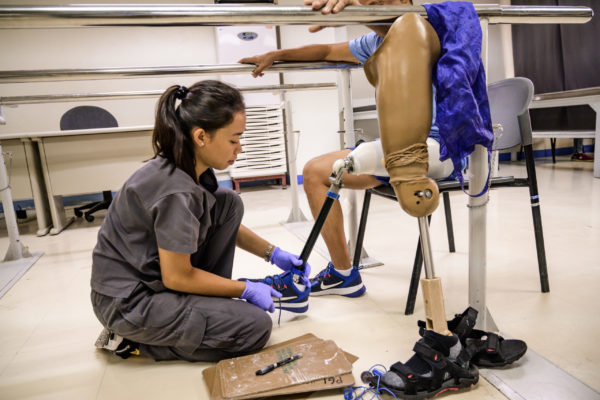December 2, 2025
Assistive Technology

Assistive Technology
The Issue
Assistive Technology is an umbrella term related to the delivery of assistive products and services, such as wheelchairs, hearing aids, and eyeglasses. According to the World Health Organization (WHO), over 2.5 billion people worldwide need assistive technology to learn, work, or fully participate in society. Yet nearly one billion of them are denied access, particularly in low- and middle-income countries, where access can be as low as three percent of the need for these life-changing products. In many of these countries, assistive technology is directly donated by charities. As a result, service delivery is highly fragmented, often running in parallel to public systems and relying on donor funding that may not be sustainable.

CHAI's Approach

CHAI is working with governments and partners such Missing Billion Initiative, ATscale, and Global Disability Innovation Hub to set up and strengthen systems that integrate the provision of assistive technology in the public sector and create sustainable demand and supply for appropriate and quality assistive products. CHAI supports the development of data systems, leadership and coordination structures, national policies and strategies, procurement guidelines, product specifications and provision standards, as well as government programs and market-oriented interventions aimed at improving accessibility and affordability of assistive technology.

CHAI is also partnering with the LEGO Foundation in eight countries – Ethiopia, Indonesia, Kenya, Libera, Nigeria, Rwanda, Sierra Leone, and South Africa – to empower children with disabilities to play and learn. We strengthen early identification of children with disabilities and ensure that these children have access to assistive technology and supportive services they need to thrive as early in life as possible.


Spotlight
Results
5
countries have launched first-ever national priority assistive products lists
50%
price reduction for eye glasses by establishing a more efficient supply chain
6
countries have launched strategies to increase access to assistive technology
Our Work

Join the Team
CHAI is looking for dynamic and self-motivated individuals who are committed to strengthening health systems around the world and expanding access to care and treatment of HIV/AIDS, malaria, and other illnesses. View All CHAI Positions View Program Positions








